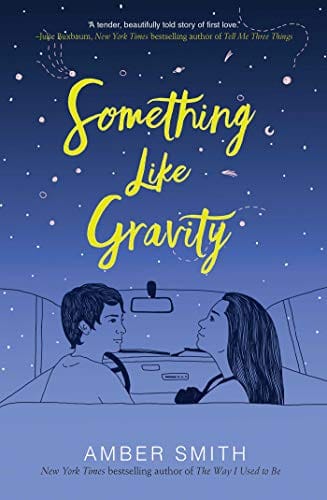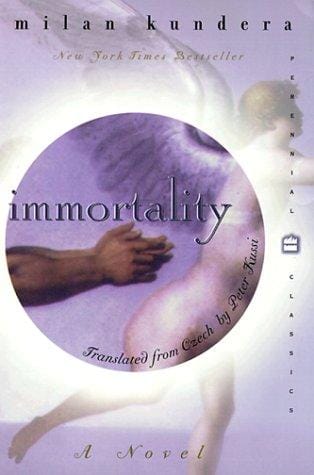Something Like Gravity: Spoiler-Free Review & Themes
Spoiler-free review of Something Like Gravity, exploring plot, characters, trans representation, and why Amber Smith’s YA romance matters.

Introduction to Something Like Gravity
Amber Smith’s 2019 young-adult novel Something Like Gravity spins a heartfelt, slow-burn romance between two teens who are both trying to stitch their lives back together after trauma. While the story orbits grief and identity, its gravitational pull is love—love of self, family and, most importantly, the tender, unexpected love that blossoms between its protagonists. In an age where inclusive YA fiction is finally gaining mainstream attention, Smith’s book stands out for its nuanced, fully realized transgender lead and for the delicate care with which it handles mental health, loss and first love.
Plot Overview (Spoiler-Free)
The novel opens on an ordinary stretch of North Carolina road when Chris, still reeling from the event that upended his life a year earlier, accidentally crashes his bike into Maia’s car. Maia, herself nursing invisible wounds from the sudden death of her older sister, is unimpressed—until she realizes Chris is the one person in town who has no preconceived notions about her family tragedy. Over a languid Carolina summer, the two form an alliance that slowly evolves into something deeper. While the premise might sound like a conventional meet-cute, Smith elevates it by focusing less on plot machinations and more on the inner universes of her characters.
Themes of Grief and Healing
Grief is the force that initially repels Chris and Maia from everyone else, yet it is also the magnet that draws them together. Maia is weighed down by guilt and anger after her sister’s fatal car accident, and she channels that pain into stargazing, hoping to find cosmic answers to questions no one on Earth seems able to face. Chris grapples with the aftermath of a violent assault that nearly cost him his life—and forced him to come out as transgender long before he felt ready. Smith treats grief not as a subplot but as a living, breathing entity, shown in late-night phone calls, panic attacks and the hesitant language of two people trying to name the unnameable.
LGBTQ+ Representation Done Right
A cornerstone of Something Like Gravity is its authentic portrayal of a trans boy written by a cisgender author who took the time to consult sensitivity readers and members of the community. Chris’s identity is integral without becoming his only narrative function. Readers see him changing his driver’s license marker, navigating bathrooms and binding his chest, but they also see him drawing planets, falling in love and making terrible jokes. The balance demonstrates that trans teens deserve stories where they are not reduced to trauma alone. For cis readers, it offers empathy; for trans readers, it offers affirmation.
Main Characters
Chris Redding is thoughtful, introspective and stubbornly independent. His love of astronomy becomes both a metaphor and a coping mechanism, giving the novel its celestial mood. Maia Mitchell is sharp, artistic and secretly terrified of forgetting her sister. Their connection feels organic, built on shared midnight drives and whispered confessions rather than grand gestures. Secondary characters—from Chris’s supportive aunt to Maia’s prickly mother—are drawn in subtle strokes that prevent the story from drifting into melodrama.
Writing Style & Atmosphere
Smith’s prose is lyrical without veering into purple. She favors sensory details—the sizzle of cicadas, the smell of wet asphalt after a storm, the hush of a planetarium dome—to ground readers in the sweltering summer setting. Chapters alternate between Chris and Maia, offering dual perspectives that enrich the emotional stakes. The pacing mirrors the season itself: slow mornings, languid afternoons and nights that feel endless, reflecting how grief can warp time. Dialogue, meanwhile, captures the tentative cadences of teenagers testing boundaries they did not set.
Intersection of Romance and Self-Discovery
What sets the romance apart is its relationship to self-discovery. Chris and Maia do not simply find each other; they find versions of themselves they did not know could exist. For Maia, that means confronting her survivor’s guilt and acknowledging that moving forward is not betrayal. For Chris, it means accepting that vulnerability does not cancel strength. Their relationship progresses with caution, consent and open communication—qualities often missing in YA romances. The result is a love story that feels as safe as it is swoony, demonstrating that healthy relationships can still deliver dramatic tension.
Why This Book Matters
The representation alone would make Something Like Gravity a vital addition to classroom shelves and library displays, but its importance transcends demographics. The novel normalizes therapy, challenges toxic masculinity and encourages honest conversations about identity. It also illuminates the simple yet radical idea that everyone deserves to be seen. In an era of rising censorship against LGBTQ+ literature, Smith’s novel provides a lifeline to teens desperate to recognize themselves on the page, reminding them they are not anomalies but stars in an expanding universe.
Who Should Read It?
If you enjoy character-driven narratives, quiet romances and honest depictions of grief, this book will resonate. Educators looking for inclusive titles will appreciate its curriculum potential, while parents can rely on its PG-13 approach to intimacy. Fans of Benjamin Alire Sáenz’s Aristotle and Dante Discover the Secrets of the Universe or Becky Albertalli’s Simon vs. the Homo Sapiens Agenda will find familiar comfort here, yet Smith’s work carves its own orbit.
Final Thoughts
Something Like Gravity proves that a love story does not have to be loud to be revolutionary. Through tender storytelling, layered characterization and an unflinching look at grief, Amber Smith offers readers a hopeful roadmap for navigating the darkest corners of adolescence. Ultimately, the novel reminds us that gravity may pull us down, but love—something like gravity, yet not bound by physical laws—can lift us back toward the light.



